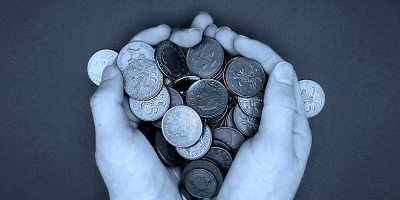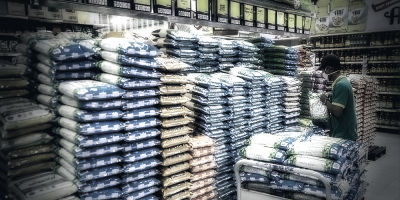Sin Chew Daily
As we proceed to the fourth phase of the national recovery plan with interstate travel ban lifted, restrictions on social activities relaxed, dine-in allowed and VTL between Malaysia and Singapore opened up, demand for daily necessities from consumers is expected to rise drastically.
Unfortunately the supply chains have failed to cope with the surge, triggering a sharp rise in the prices of food, beverage and other goods in the country.
When the economy reopens and private consumption picks up, but manufacturers and merchants are unable to absorb the rising transportation and logistic costs, the uptick will eventually be transferred to the consumers. As a result, prices of goods ranging from vegetables, meats, seafood and all sorts of daily necessities have increased.
Such a phenomenon happens not just in Malaysia but the world over. FAO (Food and Agriculture Organization) statistics show that global food prices in October reached their highest levels since 2011, up 3% from a month earlier and a whopping 31.3% climb compared to the corresponding month last year.
Here in Malaysia, the October consumer price index (CPI) was up compared to last year. Economists have warned that Malaysia’s inflationary pressure has stemmed from ringgit depreciation and intermediary profits.
No doubt, depreciation of the local unit has made imported raw materials more expensive. Malaysia, by and large, still relies heavily on imported raw materials and equipment, and this has shored up our production costs. As if that’s not enough, we also import large volumes of food materials.
Take the locally produced vegetables for instance, the unpredictable weather, in particular the year-end monsoon season, coupled with middleman and transport costs and SOP limitations, have hampered vegetable production and supply, and thus higher retail prices.
B50 and the urban poor are among the most badly affected communities of the current price upsurge.
Inflation does not just concern the general public, but has evolved into an issue exploited by the politicians. We had better ready ourselves for a jaw-dropping 30% to 200% rise in goods prices which could hit any time next year!
 Even as skyrocketing goods prices are a global phenomenon, the government has a definite role to play in mitigating this major issue pertaining to the day-to-day living of Malaysians.
Even as skyrocketing goods prices are a global phenomenon, the government has a definite role to play in mitigating this major issue pertaining to the day-to-day living of Malaysians.
The government must initiate interdepartmental discussions within the shortest time possible to seek effective solutions to tame the inflationary pressure and manage the issue of fast rising goods prices.
The government must also come up with viable strategies to address the woes of the rakyat who have just delivered themselves out of the pandemic gloom but are slapped with yet another dilemma of skyrocketing goods prices that has exacerbated their mental stress as well as financial burden.
Prime minister Ismail Sabri Yaakob has admitted that rising goods prices have become a heavy burden for Malaysians. As he has attributed the runaway prices to costs accumulated at various levels of the supply chain, he promised that the government would look into this problem seriously.
To resolve the urgent issue of price hikes, the government should consider introducing several short- to medium-term measures to help relieve the inflationary pressure arising from supply crunch and soaring goods and service costs.
Economists are of the opinion that the government may consider lowering the excise taxes and import duties of consumables, including intermediate raw materials for the manufacture of end products, and to make price control an essential strategy to stabilize the prices of necessities.
Undeniably, the government can help relieve inflationary pressure by imposing price control measures such as setting ceiling prices for specific goods, and the provision of subsidies for fuels and other goods.
With economic activities now liberalized, consumer needs and inflationary pressure are expected to soar, and the government should therefore draw up more effective solutions such as specific price control mechanisms to stabilize goods prices.
Economists feel that the government can work with producers to up the supply in tandem with rising demands. Both the government and the private sector must think of ways to boost productivity in a bid to ward off unchecked price hikes.
Consumers will invariably take the brunt if the issue remains unresolved over the long term.
ADVERTISEMENT
ADVERTISEMENT








































